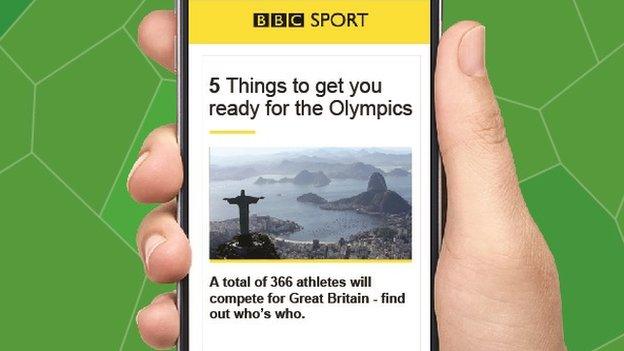Rio 2016 Olympics: Britain's Justin Rose the 'perfect winner' on golf's return to Games
- Published
- comments
"So I guess he watched," Justin Rose laughed as he revealed Rory McIlroy had texted congratulations on the Briton's Olympic gold medal performance.
McIlroy was among the high profile absentees from the men's event, along with world number one Jason Day, US Open champion Dustin Johnson and two times major winner Jordan Spieth.
Given the overwhelming success of the tournament, there is a consensus among those competing in Rio that the leading players who stayed away are now probably regretting their decisions.
Rose believes the scenes generated by the Olympic tournament will play to their competitive instincts and ensure they will want to be a part of it at the Tokyo Games in 2020.
"But they have to wait four years, that's the big thing about the Olympics," added golf's first men's champion since 1904.
A special success
After all the negativity and apathy that split the sport in the build up, golf's return to the Games is being viewed as a huge and unexpected success.
The inspired decision to make tickets available in the cheapest price bracket ensured excellent crowds, culminating in a 15,000 sell out on the final day.
They generated a unique atmosphere. No one seemed to mind play being frequently interrupted by fans not well versed in the protocols of sharing the stage with the players.

Some of the world's top players including Jason Day, Dustin Johnson, Jordan Speith and Rory McIlroy opted to miss the Rio Olympics
Rogue camera clicks went with the territory and were, in many respects, welcome because they were coming from people witnessing golf for the first time. This encapsulates the reasoning behind the game's Olympic inclusion.
"It was quite rowdy at times out there," International Golf Federation President Peter Dawson told BBC Sport.
"But it added to the atmosphere and there is nothing wrong with that. That's just what we wanted.
"It was a very different atmosphere from a normal golf event. There was a very international crowd, not all of them accustomed to golf tournaments."
It is not a parochially British observation to say that Rose was the perfect winner because no one embraced the Olympic project more enthusiastically.
The English star prioritised Rio in his schedule while GB Team Leader Jamie Spence commissioned green contour maps to ensure his players were the best prepared.
Caddie Mark Fulcher scouted the course at first light every morning and Rose's emphatic celebrations showed how much it meant.
After completing victory, the champion shared a special phone call with his seven year old son, Leo, who shed tears of joy over his dad's triumph.
"That's never happened before," Rose revealed. His young son could grasp how special was this moment because the Games provide clarity to the scale of his father's sporting achievement.
"This has resonated far wider than my US Open win," admitted Rose who landed his sole major to date at Merion in 2013. The golfer says he has received congratulatory messages from "the darkest recesses" of his phone's contacts book.
Dawson, who as R and A Chief Executive was one of the leading figures who pushed for golf's inclusion, has been going through a similar experience.
"I've actually had more messages after the men's Olympic golf event than I've had after Open Championships," he said. "The reaction has been terrific.
"These smaller countries that asked us, begged us, to get golf into the Olympics were dead right.
"It is going to increase exposure in their countries, get more government recognition and funding to the game, which - apart from expanding our competitive landscape - is why we did this."
Planning ahead for 2020
Ahead of the tournament there was much criticism of the choice of 72 hole strokeplay and a failure to implement a more imaginative format. Nevertheless it yielded a memorable Rio rumble between Rose and Sweden's silver medallist Henrik Stenson.
Changes, though, may be put in place in for the next Games in Japan. "We will be putting our heads together, really quite soon," Dawson said.
"We need to do that much quicker than people think because although Tokyo is four years away we need to determine these things a long way in advance.
"It is a necessary conversation. I've no doubt that the 72 hole strokeplay format is golf's way of determining a champion and I'm sure that will continue to have a place in the Olympic Games.
"It would be crazy to have a format at the Olympics that wasn't one that chose champions in the wider game.
"So it is a question of can we add to it, can we modify? Not can we totally change."
The Olympic torch passed to women
Something that provides a genuine team element and perhaps draws together the men's and women's games would surely enhance golf's Olympic experience.
In the meantime, all of the leading women are here to ready themselves for their tournament which begins on Wednesday. It is a wonderful opportunity for an often overlooked constituency to bask in the sporting limelight.
Nineteen-year-old world number one Lydia Ko leads the field and is fully embracing the Rio spirit. "The Olympics was probably the biggest goal of mine this year," Ko said as she began her preparations.
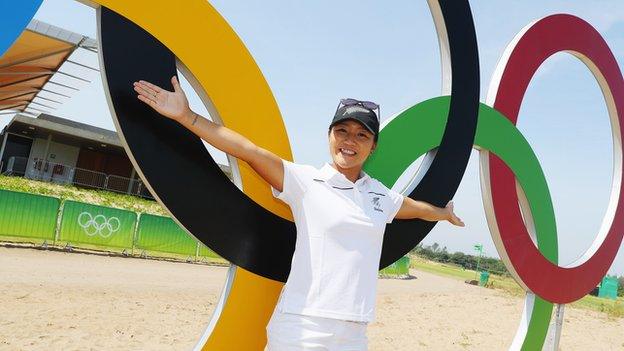
"Firstly, to represent New Zealand and obviously to compete in it.
"If I end up holding a gold medal at the end of Saturday, and standing on the podium, I think it will be extra special. I don't know if I would ever take that medal off."
And regarding the leading men who stayed away, Ko is of a similar mind to those who have enjoyed the first four days of Olympic golf.
"A lot of them would have said, hey, that's such a great vibe, I wish I was there, too," Ko observed.
And for Team GB 20-year-old Charley Hull and Catriona Matthew, 46, might be of contrasting ages, but they are united in their desire to emulate Rose's heroics.
- Published3 August 2016
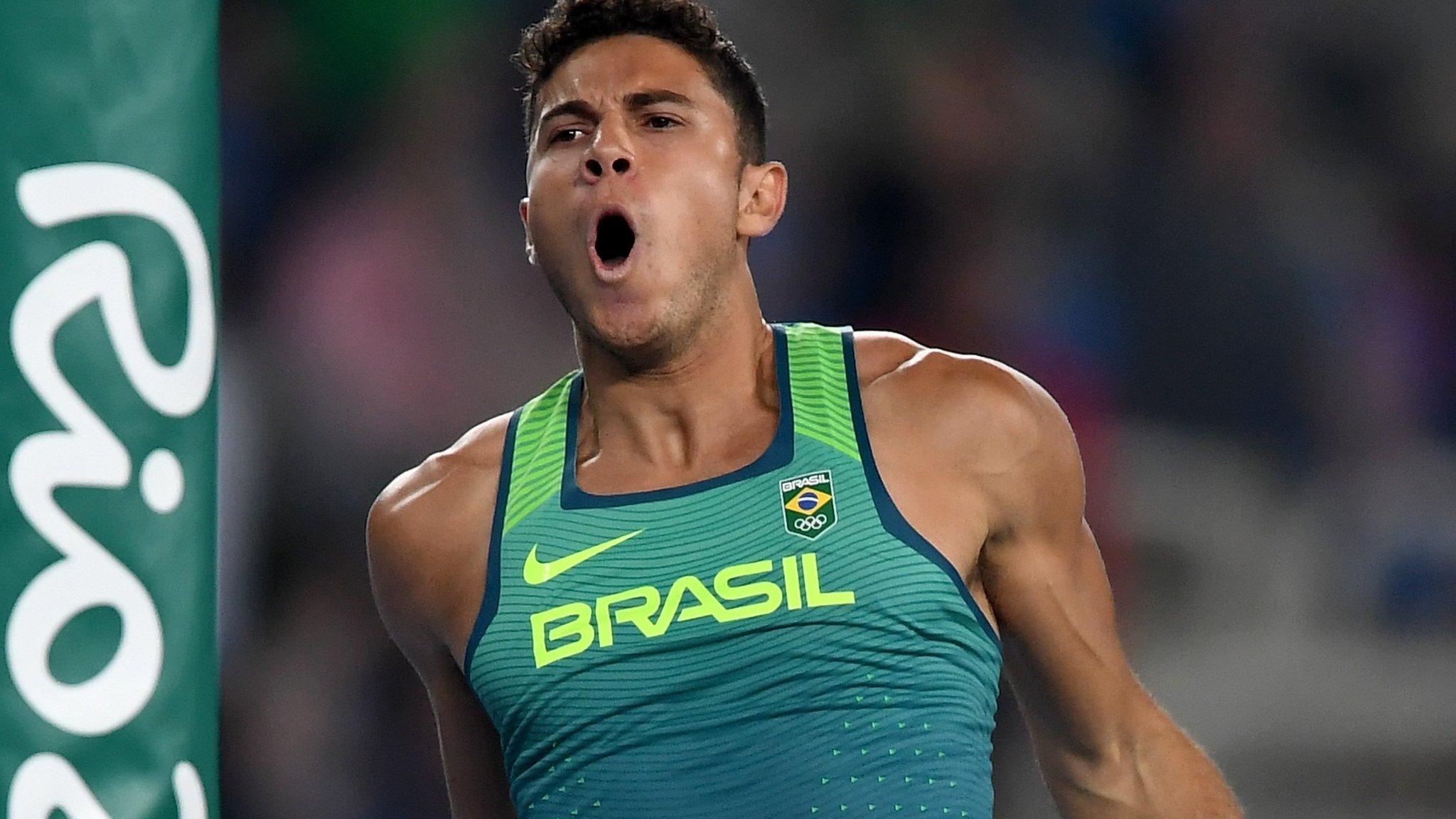
- Published14 August 2016
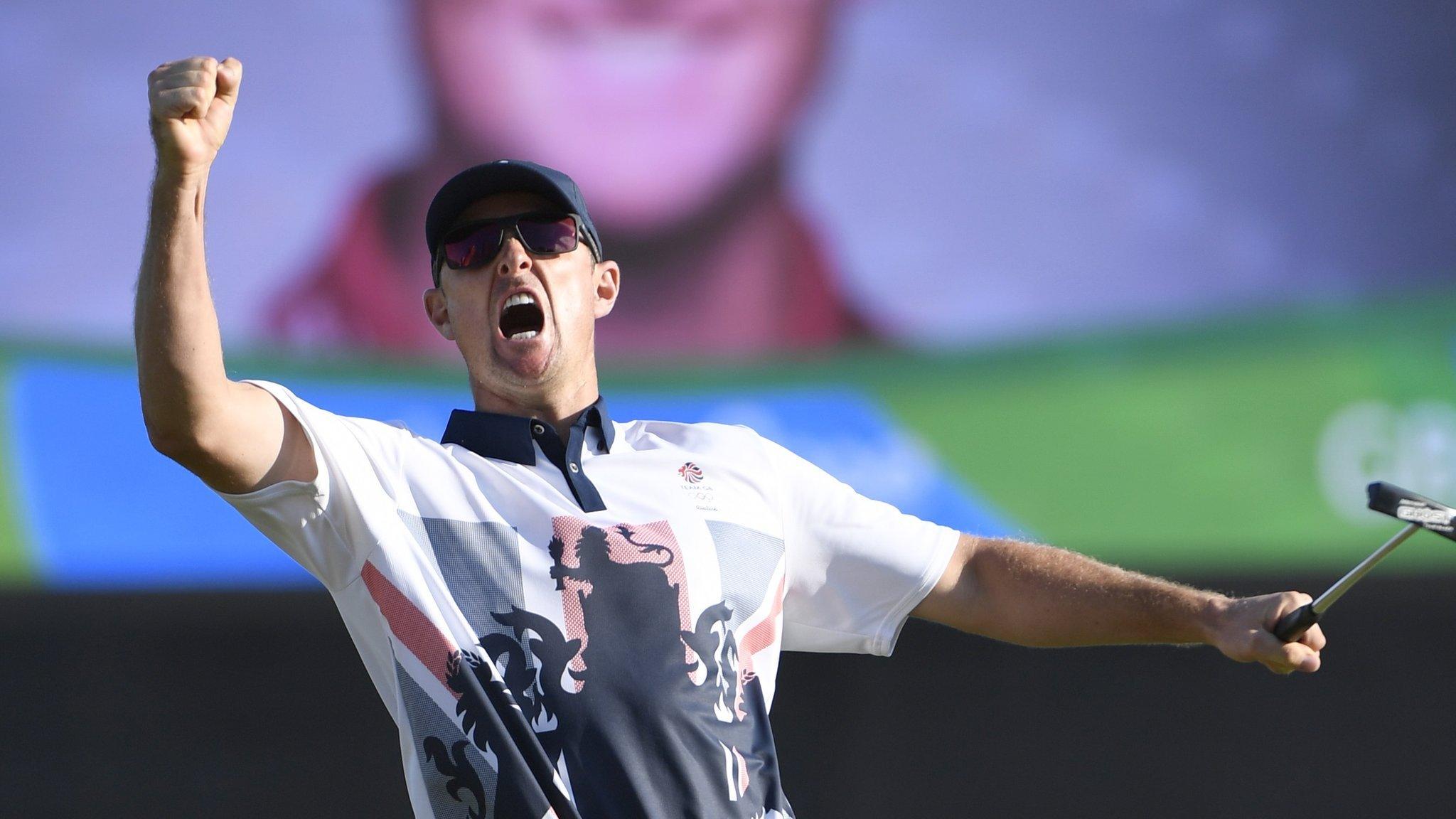
- Published11 August 2016
- Published18 August 2016

- Published3 August 2016

- Published19 July 2016
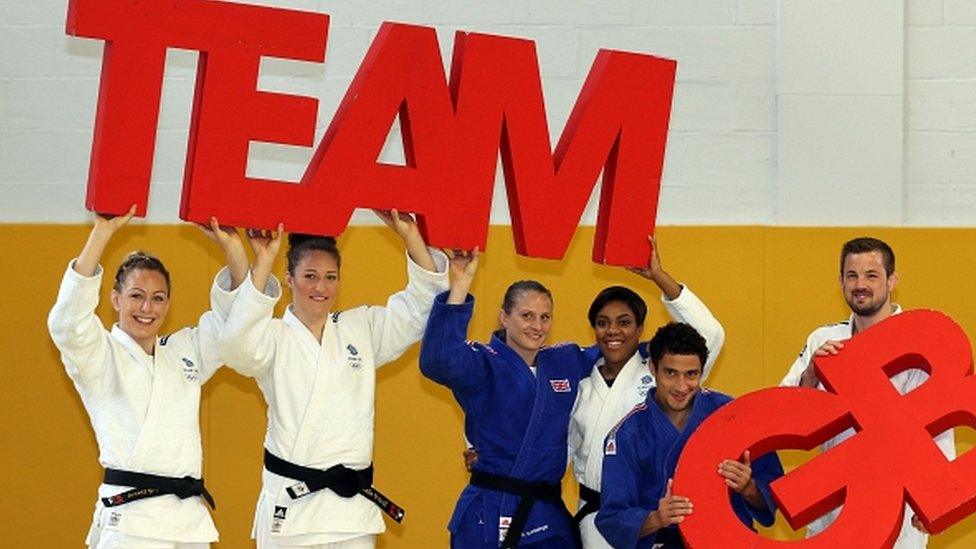
- Published3 August 2016
